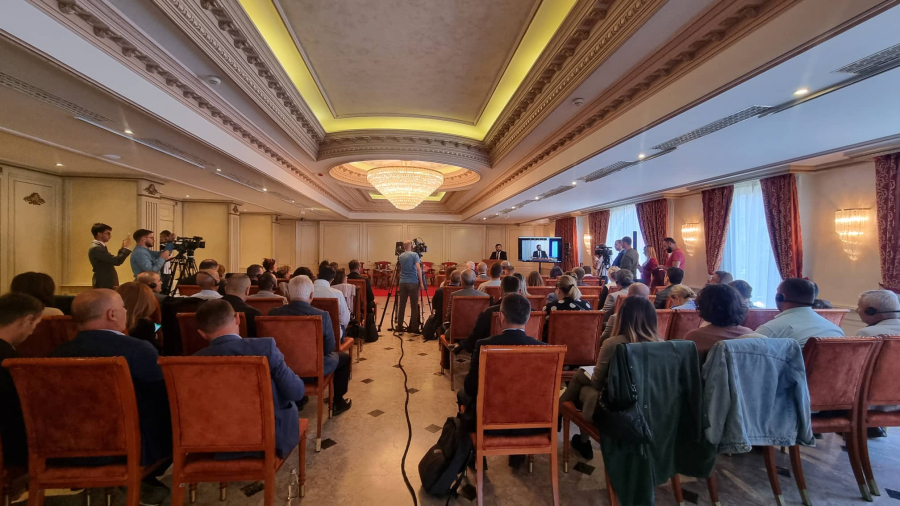23/09/2022

On 20/09/2022, the Kosovar Centre for Security Studies (KCSS) had the closing conference of the project "Building Resilience: Strengthening Kosovar trial and correctional capacities in the post-release phase of violent extremists” with the Center for International Studies (CeSI) based in Rome, Italy.
The conference started with opening remarks from the Executive Director of the KCSS Mentor Vrajolli, the Head of Analysis at CeSI Marco Di Liddo, the Minister of Internal Affairs of the Republic of Kosovo Xhelal Sveçla and the Ambassador of Italy in Kosovo H.E Antonello De Riu, in which the need for increased cooperation between Kosovo and Italy in the field of rehabilitation and reintegration, the importance of academia and research institutes in increasing the quality of state institutions at all levels, the problems of violent extremism and the economic problems that cause these issues as well as the best ways to handle repatriates from war zones were highlighted.
Further on, Skënder Përteshi (KCSS) and Marco Di Liddo (CeSI) presented the research report focusing on the exchange of ideas and methods related to the prevention of violent extremism and the implementation of rehabilitation and reintegration at the local and central level. It was pointed out that the main obstacles in the field of R&R are the inter-institutional coordination and the lack of establishing a connection between the sentence and life in the community after the sentence of the repatriated fighters.
The first panel of this international conference on "New risks and threats - terrorism and violent extremism in the Western Balkans" was composed of Besa Ismaili, lecturer at the Faculty of Islamic Studies in Prishtina, Ramadan Ilazi, Head of Research at the KCSS, Fabian Zhilla, expert on Security Studies in Albania, Samet Shabani, Executive Director of Horizon Civitas and Rebeka Qena, moderator of the panel (CDF). During this discussion, it was mentioned that fighting this phenomenon can only be done through the level of development of society and the success of democracy, reforms and the rule of law, and how democracy is successful only through the motivated will of citizens. The reasons for radicalism were further revealed, such as the competition for conflicting narratives about the past, the isolation of citizens and attempts to fail Kosovo as a multi-ethnic society.
The second panel consisted of Sabrina Martucci, R&R expert from Italy, Fadil Hyseni, representative of the Kosovo Correctional Service, Teuta Avdimetaj, Counter-Terrorism expert, Sami Hajrullahu, representative of the Kosovo Probation Service, Mensur Hoti, Director of the Department for Public Safety (MIA) and Marco Di Liddo as moderator. The topic of this panel was "R&R Policies in Kosovo and Italy". During the discussion, it was emphasized that religious neutralization is a step against human principles and how studies at academic levels can be experimental in implementation, as long as there is interest from central levels. It was further added that changes in the legal framework are efficient methods for combating violent extremism and that the repatriation process is necessary but that repatriates must be screened.
This project was financially supported by the Italian Ministry of Foreign Affairs and International Cooperation, under the supervision of the Italian Embassy in Kosovo.